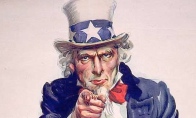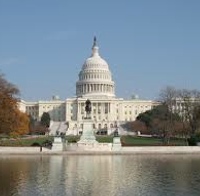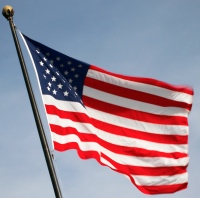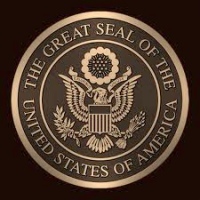- About Us
- Columns
- Letters
- Cartoons
- The Udder Limits
- Archives
- Ezy Reading Archive
- 2024 Cud Archives
- 2023 Cud Archives
- 2022 Cud Archives
- 2021 Cud Archives
- 2020 Cud Archives
- 2015-2019
- 2010-2014
- 2004-2009
 |
A Round and About Response: |
Prima facie, the ten principle points (few people are impressed by us; few people hate us; we know nothing about the rest of the world; we are poor at expressing gratitude and affection; the quality of life for the average American is not that great; the rest of the world is not a slum-ridden shithole compared to us; we’re paranoid; we’re status-obsessed and seek attention; we are very unhealthy; we mistake comfort for happiness) in the piece, “10 Things Most Americans Don’t Know About America,” are tempting to agree with informally, born and bred as I was in India for upwards of three decades, before settling in America for the last 19 years. (For what it’s worth, I am a US citizen.)
However, the difficulty in responding to—critiquing—this piece, as in any piece written in overarching generalities (its principal posits are listed above), is self-evident, and each of its ten sub-arguments lose or gain some force when viewed, as they must—Americans do not actually live in a vacuum, though they seem to—, relative to the opinions foreigners have of their own countries. (Ergo, there is no country to which none of these charges would stick.) Further, while all ten points are valid, each is so in varying degrees only; moreover, counterpoints easily obtain for all the propositions, dissipating the argument, thereby. This may be construed not so much as a repudiation of the argument as an exposure of its conceit’s near-nullities. Take, for example, the first point: “few people are impressed by us”; well, Yes and No. There are people outside the exceptions (“English and Australian people”) who are impressed, too (rightly or otherwise—otherwise, if you ask me). For instance, see what Samir Khader (worth seeing, if not, in Control Room, a 2004 documentary film), senior producer of Al Jazeera during Bush II’s Iraq war, had to say:
Between us, if I am offered a job with FOX, I would take it - to change the Arab nightmare to the American dream....I still have that dream. Maybe I will never be able to do it, but I have plans for my children - when they finish their high school, I will send them to America to study there. I will pay for their study, and that will save them.
This, from a man risking his life reporting to the world the US’s deceitful war of choice in Iraq; a reporting, mind well, antithetical to what Fox, indeed even the other—supposedly liberal—networks dish out, ad nauseam, for US consumption.
The rest of the world’s relationship with the US is complex (as evidenced by the starkly paradoxical aspiration, above) in part—in part, only—because its—the world’s—peoples’ understandings of the country—the US—are uniformly disparate. Simplistically speaking, it is akin to the proverbial blind men deeming the behemoth to be such and such, depending on which part of the pachyderm any one of them is singularly feeling at a particular time. Power (US’s historically-unparalleled global hegemony) evinces fear and fascination in others (non-Americans, other than the British and Australians, per the author of the article in question) in roughly equal degree. If even a man (Khader) who sees American savagery at its worst in Iraq, first hand, is enamored by the American Dream, is enchanted by its tinsel allure, what chance have those who didn’t—and don’t—have his vantage? Their dilemma may be likened to that of the poor man, so enamored by the prospect of future riches, that he roots for the rich, espouses their callous ways, knowing even whilst so doing, they (the rich and their riches, both) are the root causes of his miseries, original. (Republicans and Tea-Party types are the poor exceptions, for, even whilst so doing, they know not.)
Few people are impressed by us—Americans—but then, equally few are not.  And as many hate as love us, even though they know as much about us—or as little—as we about them. As for their gratitude and affection towards America, these are transient trifles, as fickle as the rounding errors in multi-trillion-dollar deficit figures as they go this way and that, but mostly that, depending on which regimes or banks or financial institutions (little difference) around the globe, and at any politically expedient moment, the US spends untold billions, toppling…or propping. The quality of life in the US is not enviable by third-world parvenus’ standards. Yes. Yet, it is striven for by their lesser lots (untold billions upon billions of them). And it is not that Americans are paranoid, per se; rather, they are rendered so by their leaders the easier to manipulate their fears—but then, which leader in the world—free or fettered—doesn’t? And no, obsession with status and attention-seeking are universal traits, perhaps seeming more pronounced only because of our higher, top-of-the-heap, profile. (YouTube China’s terrifyingly-perfect Olympic Games’ Opening choreography, for example, and this will at once become apparent.) And yes, we are very unhealthy; how could we be otherwise? We feed on food, if not fast, fatty, if not fatty, genetically modified; for, profit is the prime American motivator. But then which country is shying away from the American blueprint for happiness? Sadly, not too many. Rather, so many countries’ elite, hitherto driven by at least theoretically-moral socialist ideologies and economies (China, India, Russia readily come to mind) now trip over themselves, divesting the last vestiges of their states’ social responsibilities and obligations towards their multitudes, trying on their bespoke, yet garish, capitalist garbs. Happiness, like gains begotten off the backs of our poor brothers, trickles down, didn’t we know?
And as many hate as love us, even though they know as much about us—or as little—as we about them. As for their gratitude and affection towards America, these are transient trifles, as fickle as the rounding errors in multi-trillion-dollar deficit figures as they go this way and that, but mostly that, depending on which regimes or banks or financial institutions (little difference) around the globe, and at any politically expedient moment, the US spends untold billions, toppling…or propping. The quality of life in the US is not enviable by third-world parvenus’ standards. Yes. Yet, it is striven for by their lesser lots (untold billions upon billions of them). And it is not that Americans are paranoid, per se; rather, they are rendered so by their leaders the easier to manipulate their fears—but then, which leader in the world—free or fettered—doesn’t? And no, obsession with status and attention-seeking are universal traits, perhaps seeming more pronounced only because of our higher, top-of-the-heap, profile. (YouTube China’s terrifyingly-perfect Olympic Games’ Opening choreography, for example, and this will at once become apparent.) And yes, we are very unhealthy; how could we be otherwise? We feed on food, if not fast, fatty, if not fatty, genetically modified; for, profit is the prime American motivator. But then which country is shying away from the American blueprint for happiness? Sadly, not too many. Rather, so many countries’ elite, hitherto driven by at least theoretically-moral socialist ideologies and economies (China, India, Russia readily come to mind) now trip over themselves, divesting the last vestiges of their states’ social responsibilities and obligations towards their multitudes, trying on their bespoke, yet garish, capitalist garbs. Happiness, like gains begotten off the backs of our poor brothers, trickles down, didn’t we know? (Capitalism, I’ve been too-often told with a straight face—slightly less straight, admittedly, after the 2008 too-big-to-fail bank-bailouts—trumped all the other isms when Reagan, the patron saint of all things Republican, piously, politically, importuned Gorbachev to tear down [that] wall. In the real world’s history books, Gorbachev, not Reagan, was the man who torn down the wall with glasnost’s hammer and perestroika’s sickle). So, today’s McDonald’s patrons (billions and billions sold out) become tomorrow’s hospital patients, and triple burgers eaten in the former lead to quadruple bypasses performed in the latter, but burger-houses and hospital beds must ultimately be paid in the same currency the nation’s freshly-minted college graduates use to discharge their master(card)’s trillion-dollar loans, via their jobs (de facto near-lifelong indentured servitudes carried out in corporate cubicles, etc., serving bastard bankers and their obsequious, criminal counterparts on Wall Street and on K Street, and the White House warlords and the Capitol Hill humbugs who will all ultimately make away with their hard-earned retirement funds), which, when unceremoniously fired from, will render them free to re-invent themselves one last time before their undignified, debt-ridden deaths as Wal-Mart’s golden-year, minimum-wage greeters, living out their wretched days in the happy-faced comforts of their borderline employments.
(Capitalism, I’ve been too-often told with a straight face—slightly less straight, admittedly, after the 2008 too-big-to-fail bank-bailouts—trumped all the other isms when Reagan, the patron saint of all things Republican, piously, politically, importuned Gorbachev to tear down [that] wall. In the real world’s history books, Gorbachev, not Reagan, was the man who torn down the wall with glasnost’s hammer and perestroika’s sickle). So, today’s McDonald’s patrons (billions and billions sold out) become tomorrow’s hospital patients, and triple burgers eaten in the former lead to quadruple bypasses performed in the latter, but burger-houses and hospital beds must ultimately be paid in the same currency the nation’s freshly-minted college graduates use to discharge their master(card)’s trillion-dollar loans, via their jobs (de facto near-lifelong indentured servitudes carried out in corporate cubicles, etc., serving bastard bankers and their obsequious, criminal counterparts on Wall Street and on K Street, and the White House warlords and the Capitol Hill humbugs who will all ultimately make away with their hard-earned retirement funds), which, when unceremoniously fired from, will render them free to re-invent themselves one last time before their undignified, debt-ridden deaths as Wal-Mart’s golden-year, minimum-wage greeters, living out their wretched days in the happy-faced comforts of their borderline employments.
Which brings us, finally, to the tenth plaint: “Americans mistake comfort for happiness.” Hallelujah! Given an unsurprising majority of Americans’ blissful belief in a conceptual conjuring (commonly called God), mistaking comfort for happiness is a small mercy they may thank God for.
